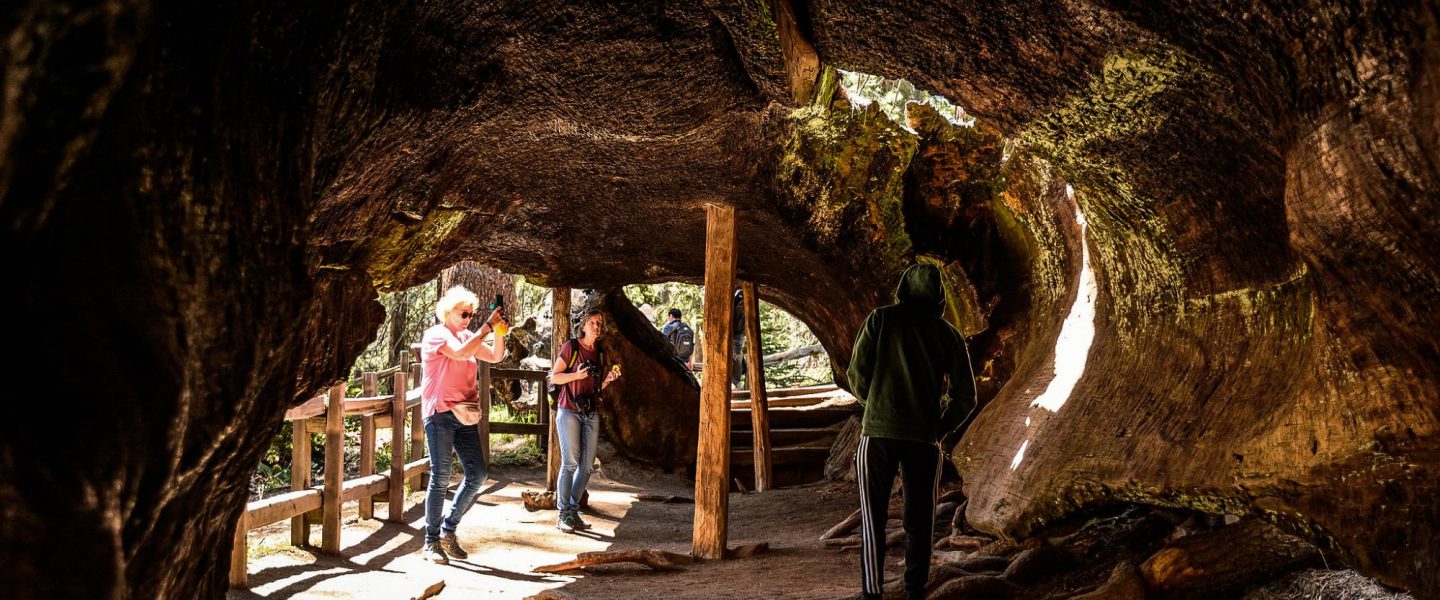The Indigenous Tree Climber Who Saved a Burning Sequoia
PICKS are stories from many sources, selected by our editors or recommended by our readers because they are important, surprising, troubling, enlightening, inspiring, or amusing. They appear on our site and in our daily newsletter. Please send suggested articles, videos, podcasts, etc. to picks@whowhatwhy.org.
|
Listen To This Story
|
The Indigenous Tree Climber Who Saved a Burning Sequoia (Maria)
The author writes, “From the helicopter, Charlie Castro could gaze down into the heart of the tree, a hollowed-out cavity alive with raging red flame. Just hours earlier, he had been in Montana, where forest fires were racing across the timberland. But when lightning struck one of the giant sequoias in California’s celebrated Grant Grove, sparking a blaze that threatened to spread across its thousand-year-old trees, the National Park Service needed a firefighter who could climb right up to the conifer’s burning crown. … It was a job that Castro, an Indigenous tree-climber, was uniquely suited for.”
Ohio Redistricting Measure to Replace Politicians With Citizen Panel Clears 1st Hurdle (Dana)
The author writes, “A group that wants to remove lawmakers from the process of drawing congressional and state legislative maps cleared its first hurdle Monday. The group, Citizens Not Politicians, has proposed replacing the current Ohio Redistricting Commission, composed of three statewide elected officials and four lawmakers, with a 15-member citizen panel instead. Ohioans would have to approve that change to the state constitution, and the group is targeting the November 2024 ballot.”
Why There’s a Serious Cancer Drug Shortage, and How to Fix It (Sean)
From Scientific American: “A cancer diagnosis is already devastating. It’s even more gut-wrenching when your doctor tells you that a drug shortage has disrupted your treatment regimen — that your hospital can’t get its hands on the very drugs that can save your life. Many cancer patients are now facing this grim reality as hospitals nationwide weather what is ‘likely the worst chemotherapy drug shortage crisis that the U.S. has ever seen,’ says Amanda Nickles Fader, a gynecologic oncologist at Johns Hopkins Medicine.”
Idaho Created a $25 Million Fund to Fix Unsafe Schools. Why Is Nobody Using It? (Al)
From ProPublica: “About a decade ago, one school district went to the state for money to fix its crumbling buildings. It got a fraction of what it asked for. Since then, no other district has even applied.”
Will Top Schools Continue ‘Legacy’ Admission Preferences? Many Say Yes. (Gerry)
The author writes, “Many big-name colleges will continue to boost applications from children of their alumni, despite intense scrutiny of so-called ‘legacy’ preferences from government officials and others after a landmark court ruling against race-based affirmative action. Yale, Cornell, Duke, Brown, Vanderbilt and Emory universities, as well as the University of Pennsylvania, all confirmed [last] week that they would consider the legacy ties of high school seniors who apply to enter next fall.”
For Migrating Birds, It’s the Flight of Their Lives (Laura)
The author writes, “America’s birds are in trouble. Since 1970, nearly 3 billion birds have vanished from the skies over North America. Most of those losses have been in migratory species, which may breed in the United States or Canada in the summer before heading elsewhere for the winter. Many spend more time living on Caribbean beaches or in Costa Rican forests than they do in American backyards. … Protecting these birds will require working across international borders and safeguarding all of their habitats, many of which are under threat. If migrating birds lose their winter refuges, the consequences will ripple across the hemisphere.”
Turns Out Earth Has an Eighth Continent. And You May Have Already Been There. (Reader Steve)
The author writes, “The eighth continent is mostly underwater. No — it’s not Atlantis. Termed Zealandia, it stretches from the Pacific to the Tasman and Coral Seas. The only promontories jutting above the surface of the ocean with any sizable population are New Zealand and New Caledonia. Following extensive geological mapping of the seabed of the vast expanse of ocean, scientists now believe Zealandia was part of Gondwana, the large fragment of the supercontinent Pangea that began to break up some 800 million years ago. A large portion, comprising landmasses that now include modern day Australia and Antarctica, drifted away.”




